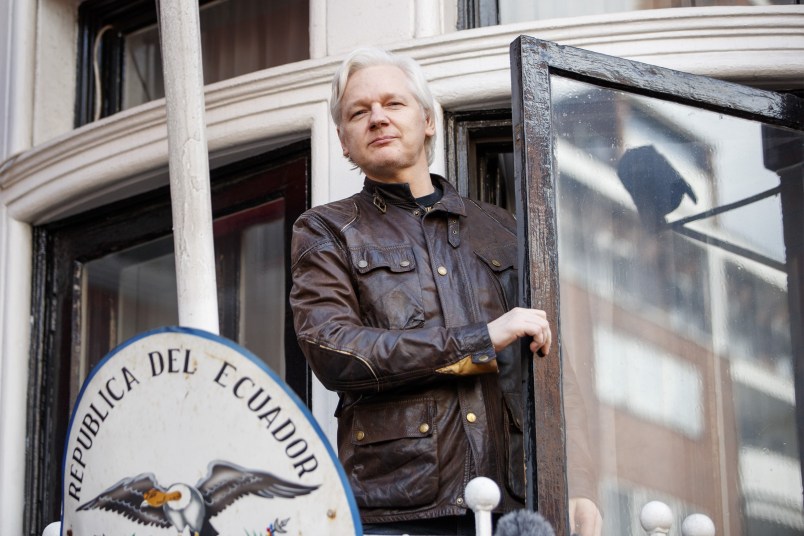WikiLeaks founder Julian Assange allegedly worked with U.S. military intelligence analyst Chelsea Manning to try to access a government computer network after Manning transferred thousands of internal files to the self-proclaimed transparency organization, federal prosecutors alleged in an indictment unsealed Thursday.
The indictment — filed in the Eastern District of Virginia in March 2018 — offers the first look into what criminal behavior prosecutors have long believed they could pin on Assange, who has been under investigation since Wikileaks’ 2010 release of hundreds of thousands of classified diplomatic and military files.
The allegations that prosecutors lay out appear unrelated to Assange’s publishing activity. Instead, they focus on conduct that apparently occurred after Manning transferred the bulk of the military files to Assange.
Assange was charged with one count of trying to hack a classified U.S. government computer. He faces a maximum of five years in prison, if convicted on the charge.
The court filing states that Manning worked with Assange to attempt to gain computer access privileges that she had not been granted in her capacity as an intelligence analyst.
Manning allegedly gave Assange a portion of a computer password that, if successfully “cracked,” would have afforded Manning broader access to the military computer network while also concealing her identity.
“The portion of the password Manning gave to Assange to crack was stored as a ‘hash value’ in a computer file that was accessible only by users with administrative-level privileges,” the indictment reads. “Manning did not have administrative-level privileges, and used special software, namely a Linux operating system, to access the computer file and obtain the portion of the password provided to Assange.”
The alleged “password-cracking agreement” purportedly came after Manning had already transferred the hundreds of thousands of sensitive files to Assange.
It is not clear from the indictment if Assange was successful in helping Manning “crack” the password.
The document states that Manning sent Assange a portion of a Defense Department password on March 8, 2010.
“No luck so far,” Assange purportedly told Manning in a March 10 message, regarding whether he had been successful in cracking it.
After Manning sent Assange the password, the indictment reads, she downloaded the hundreds of thousands of State Department cables and transferred them to Assange via a cloud drop box service. WikiLeaks later released them.
Barry Pollack, Assange’s U.S. attorney, sent TPM a statement saying that “journalists around the world should be deeply troubled by these unprecedented criminal charges.”
“While the indictment against Julian Assange disclosed today charges a conspiracy to commit computer crimes, the factual allegations against Mr. Assange boil down to encouraging a source to provide him information and taking efforts to protect the identity of that source,” Pollack wrote.
The 2010 release of hundreds of thousands of diplomatic cables and internal U.S. military files enraged the U.S. government, with then-attorney general Eric Holder saying in November 2010 that there was an “active, ongoing criminal investigation” into Wikileaks.
Manning was sentenced to 35 years behind bars related to the leak, but only served seven years after President Obama commuted the sentence.
Read the eight-page indictment below:






